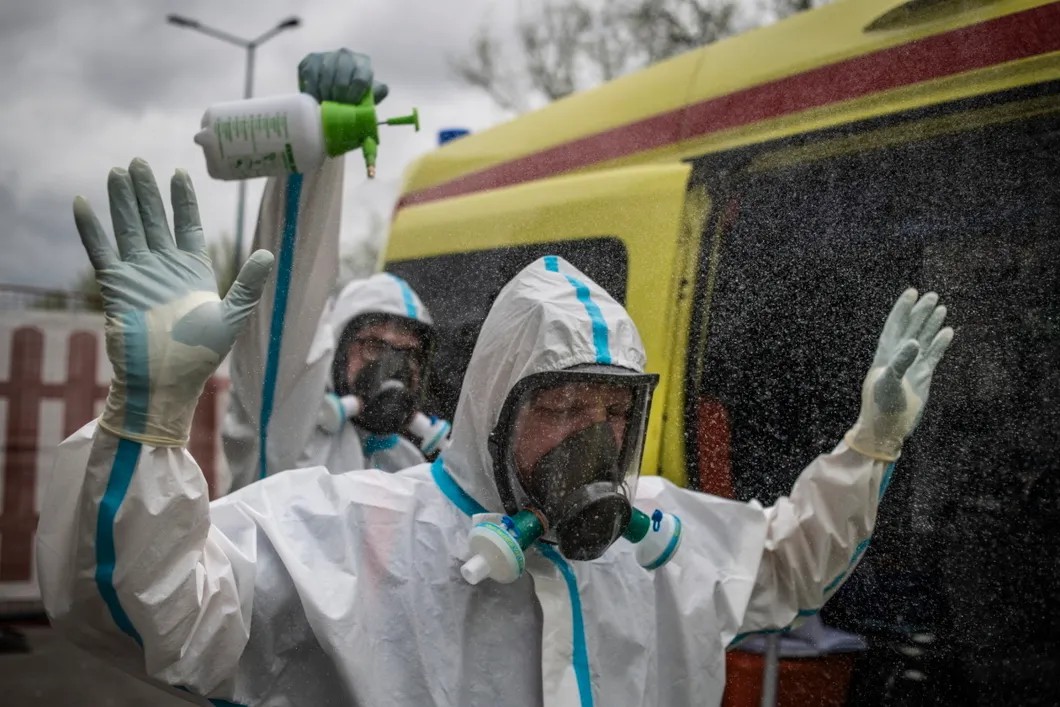
This Week’s Highlights
A caution tale from the Russian regions that rush with ‘decontamination’ and see the Covid-19 infections rise; Swiss law enforcement accused of colluding with Russia; Libya becomes Kremlin’s ‘second Syria’ as we explain Moscow’s growing role in the Libyan civil war; plus, a group of Russians is accused of ‘eco-extremism’ for literally just planting trees.
Want to get the full story? Click the links below for full-length articles in Russian.
Decontamination Fail’ of Russian Regions, Explained
On the day that President Vladimir Putin gave regions the green light to relax the lockdown, Russia recorded its highest number of Covid-19 infections (on top of being the world’s largest outbreak after the US.) Analyzing the quarantine rollbacks in over 60 out of 83 regions, we’ve spotted two-thirds of them flouting the state recommendations. Why?
First, nobody knows how bad it is.The Russian government set clear criteria for easing restrictions in the regions: the R0 number (reproduction rate) below one, a specific number of hospital beds reserved for Covid-19, and at least 70 daily tests for every 100,000 people. But the flaw of the plan is that there’s no reliable Covid-19 data in the country, to begin with. So while it’s impossible to determine how many regions met these criteria, dozens of provinces rushed to lift lockdown measures.
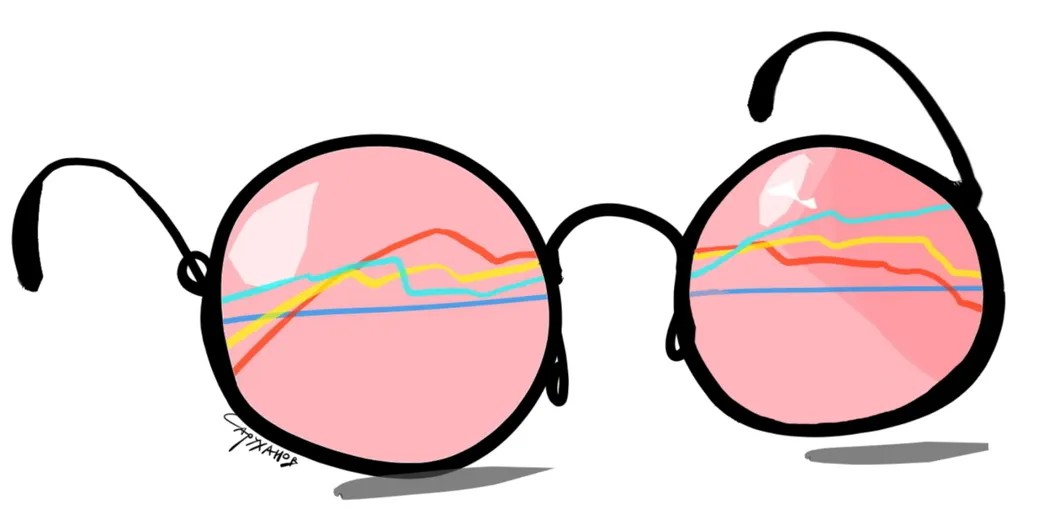
Second, most regions are faking ‘the recovery.’Since the Covid-19 reproduction rate usually fluctuates significantly on a daily basis, it is very difficult for the regions to flip back and forth on restrictions, Mikhail Tamm, an associate professor at Moscow State University tells us. Furthermore, for the formula to work, the number of cases in the region needs to be more or less consistent. But that’s unlikely so a growing number of regions have turned to fix their data, Tamm believes.
Third, it is economic fear vs lives. Regions can’t afford to stay closed amid worsening economic situation in the country hit by Covid-19 hard. Natalya Zubarevich, a professor at the Department of Economic and Social Geography at Moscow State University, tells us that local authorities are making these decisions in the face of growing budget deficits and an absence of state support.
“Governors are choosing to open their economies because their budget deficits will grow dramatically and the federal government has not yet said anything about supporting regional budgets … [the governor] understands that his income base is shrinking but he cannot cut costs,” Zubarevich says.
Plus, it’s a hard time for Russian hospitals.Except for those treating Kremlin officials. There’s a ban on purchasing foreign medical equipment in Russia as part of counter-sanctions for the international pushback against the 2014 Crimean annexation. It made many Russian hospitals more vulnerable in the face of the pandemic. However, as our analysis of state contracts exposes, the same rules don’t apply to the Kremlin clinics.
Kremlin lives matter.Just this spring, as Covid-19 was already spreading across Russia, officials bought high-tech equipment from Austria, Germany, Japan, India, and the US for their hospitals. Specifically, St. George hospital in St Petersburg, signed a contract for 84 foreign-made ventilators (costing around $381,000) after seven people died when domestically made ones caught on fire.
Move coronavirus, Kremlin patients need their luxury liqueurs and botox.Recently, a government agency announced purchases of cosmetic injectables from France, Sweden, and Japan for one of its clinics, valued at nearly $10,000. Meanwhile, in the midst of a pandemic, a Kremlin health resort has splurged $13,000 on liqueurs and aperitifs for its guests.
Read the full story on Russian regions easing lockdown hereand the Kremlin’s foreign healthcare purchases here.
Russia Collusion in Switzerland, Exposed
This story has everything: FIFA corruption, people accused of interference in the U.S. election, European officials traveling for 'bear hunts' in Russia, and more.
Where the collusion happened.In an unprecedented move, the Swiss parliament considers the impeachment of the country's Attorney General for a botched FIFA corruption probe. Michael Lauber is also questioned over a former assistant with strong Russian ties. Swiss investigators keep the assistant's name classified, nicknaming him 'Victor K,' instead. However, Novaya Gazeta has decided to reveal his real name and detail his collusion with corrupt Russian officials, including those connected to the interference with the 2016 U.S. elections.
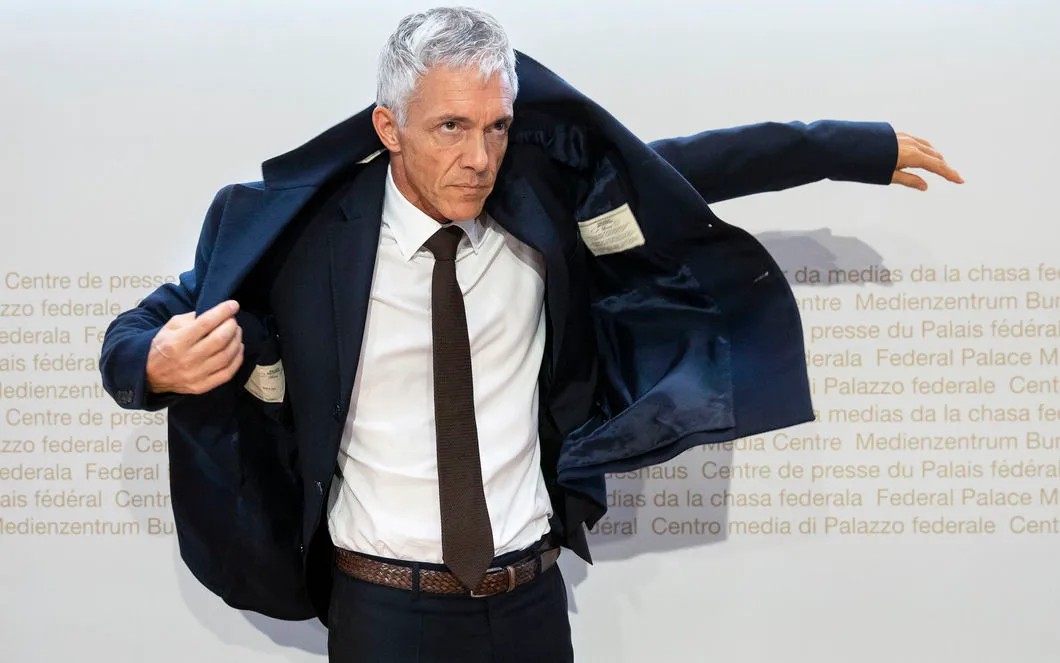
Meet the key person behind the collusion. An officer at Swiss criminal investigation department 'Victor K' — or Vinzenz Schnell, as our investigation reveals — worked on major Russia cases, including that of Sergei Magnitsky. Schnell often blurred the line between business and leisure. For example, he took several hunting trips to Russia with late Russian deputy prosecutor general and Putin ally Saak Karapetyan. During a 2016 visit to Russia, he met with lawyer Natalya Veselnitskaya, who, at the time, represented the interests of Magnitsky's tormentors. She later would reappear at the epicenter of the probe into the Russian meddling in the 2016 U.S. elections.
The results of the collusion.While Schnell worked for the prosecutor's office, Swiss authorities would either fail to initiate criminal investigations of the Russian money laundering or allow them to collapse, including the Magnitsky investigation. Since most of the laundered Russian money in the Magnitsky case was channeled through Switzerland, that stands as a significant red flag.
Поддержите
нашу работу!
Нажимая кнопку «Стать соучастником»,
я принимаю условия и подтверждаю свое гражданство РФ
Если у вас есть вопросы, пишите donate@novayagazeta.ru или звоните:
+7 (929) 612-03-68
Collusion fallout.Eventually, Schnell was fired in 2017 for corruption but got away with just a $9000 fine thanks to passionate backing by his then supervisors, including Michael Lauber. Evidently, the Russian collusion at the Swiss Attorney General office had deep roots. Switzerland now re-examines the Schnell case alongside Lauber's impeachment. Schnell denies any wrongdoing.
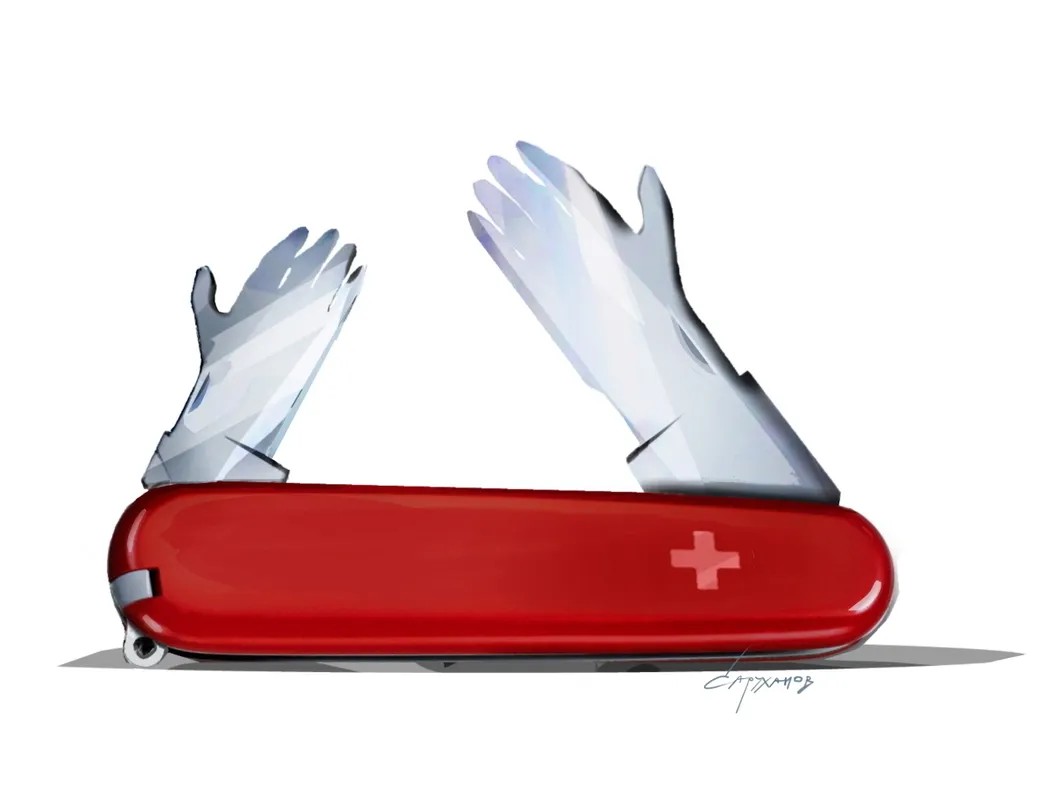
Magnitsky backstory.A Russian lawyer Sergei Magnitsky blew the whistle on a massive embezzlement scheme in Russia in the late 2000s. It uncovered over $230 million stolen from the Russian budget and transferred to foreign accounts. Magnitsky was jailed and died in prison. The story led to the rollout of the Magnitsky Act punishing the involved Russian officials via U.S. sanctions, which later expanded to punish human rights abusers worldwide.
Russia and FIFA corruption backstory.Switzerland investigates several FIFA corruption cases following a 2015 raid on a Zurich hotel and numerous FIFA executives arrests. The world's top football association has been facing international scrutiny since 2010, when it awarded the 2018 and 2022 World Cups to Russia and Qatar. In 2020 the U.S. Justice Department revealed the investigation that exposes the Russian officials in bribing FIFA management for the right to host the 2018 FIFA World Cup.
Read the full story on Vinzenz Schnell’s involvement in Russia in English here.
Russia’s Expanding Warfare in Libya, Explained
The Kremlin's lesser-known proxy war next to one of the world's largest oil fields gets super messy. There is a major dynamic shift happening in the Libyan civil conflict, which is by now a proxy war between Turkish and Russian forces. After years of successful expansion, the Kremlin-backed general Khalifa Haftar is suddenly losing ground to the UN and Turkey-backed Government of National Accord (GNA). What went wrong for Moscow?
It is all about the Turkish drones.Six years of Haftar's victories were facilitated by UAE and Saudi money, Russian conventional weapons, and the help of the notorious Kremlin-linked private mercenaries from the Wagner Group. But Turkey stepped in the war big time last year, and the recent wave of targeted drone strikes helped GNA to launch a counteroffensive, forcing Haftar to retreat for the first time.
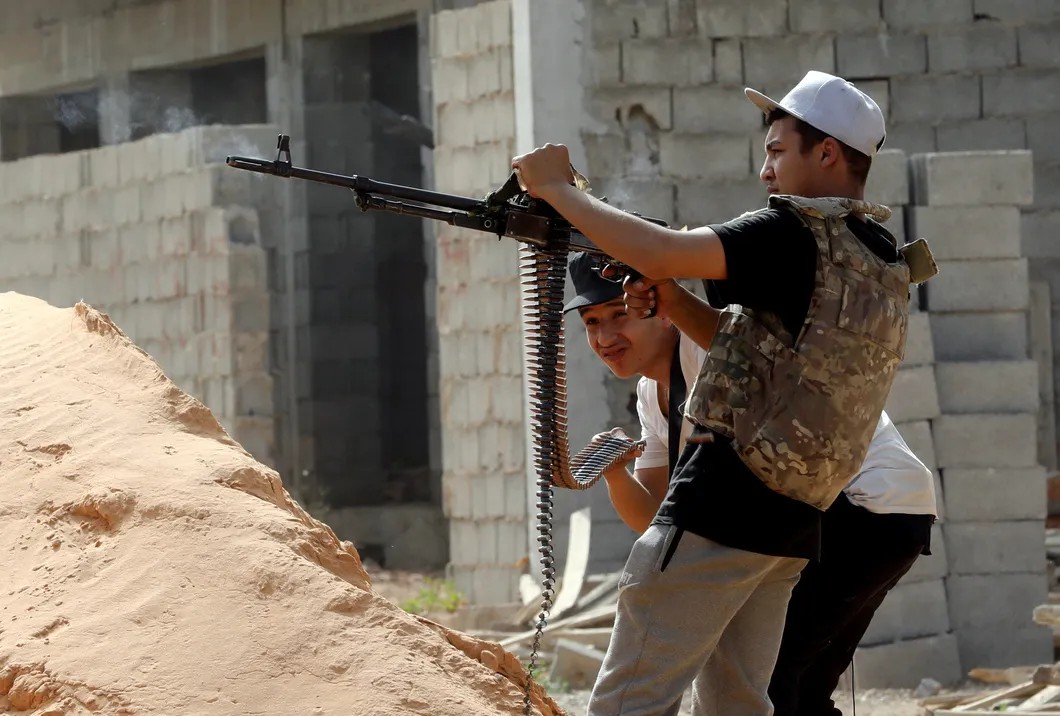
The Kremlin changes the Libyan strategy from 'ground' to 'air.'Earlier this year, Haftar lost the strategic base of al-Watiya, which he used to siege the country's capital of Tripoli. A captured Russian-made and UAE-bought missile system was paraded by GNA. Following that, hundreds of Russian mercenaries have reportedly been evacuated from the frontline. Instead, the battle for airspace is pending now after a dozen of Russian-made fighter jets have reportedly landed in Haftar-controlled western Libya.
Both Russia and Haftar deny the presence of Russian mercenaries. But evidence points otherwise.Their operations in Libya are confirmed by a recent leaked UN report. In the latest example, a video and photographs of a dead whitefighter circulate on pro-GNA social media accounts, claiming it is a body of a Wagner mercenary killed by Libyan government forces near Tripoli. Both the authenticity of the footage and the identity of the man remain in question.
Backstory.The Wagner Group is a Russian private military firm operating in countries including Ukraine, Syria, Venezuela, and several African states. It's linked to the Russian billionaire businessman and Kremlin "fixer" Yevgeny Prigozhin, who is leading Putin's expansion in Africa. Prigozhin is also under US sanctions for his affiliation with the St. Petersburg "troll factory" – a company engaged in online influence campaigns on social media.
Read the full story on Russia’s involvement in Libya here.
Other Top-Stories Russia Has Been Reading
- How ambulance workers battle Covid-19. In a special report this week, our award-winning journalist Elena Kostyuchenko and photographer Yuri Kozyrev document several shifts of Moscow ambulance workers at the 'ground zero' of the country's outbreak. Typically, the dispatch center used to receive between 12,000 and 15,000 calls per day. Now, that's just about doubled. Covid-19 claims victims among ambulance workers, too — more than one here has lost a colleague to coronavirus. Many are working overtime. "What has the pandemic changed?" echoes paramedic Mikhail Avdyukov. "We work every three days. You work for 24 hours, sleep for 24 hours, prepare for 24 hours. There's not much time for rest. The load isn't getting smaller …"
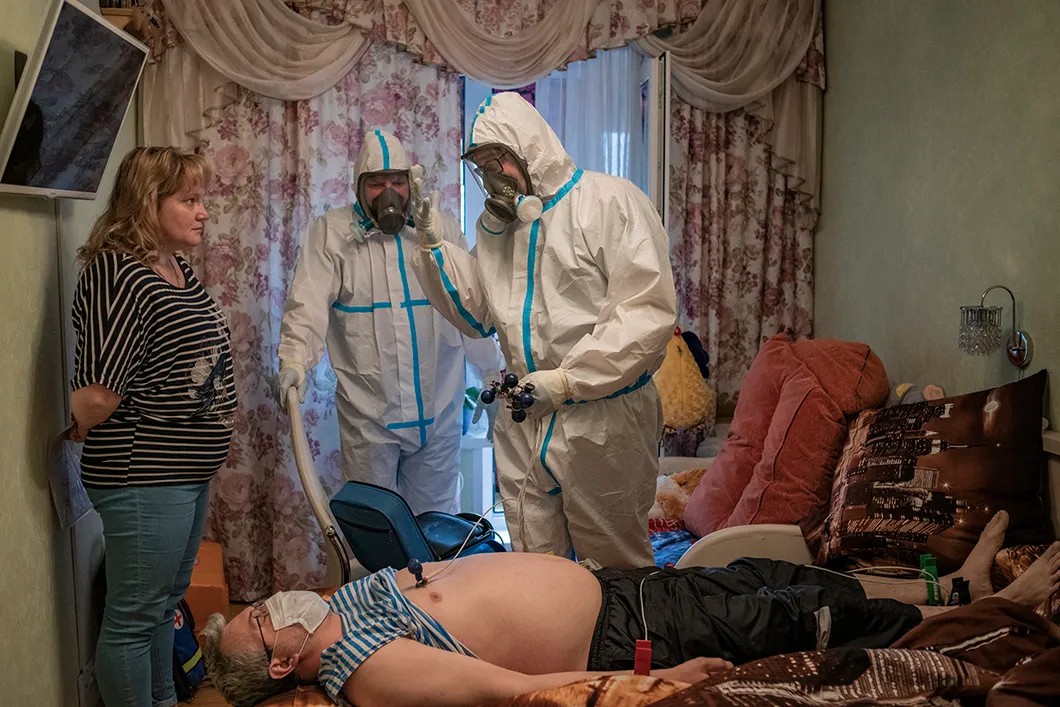
- In Russia you get accused of extremism for planting trees.We follow a new environmental stand-off in Russia's fourth-largest city of Yekaterinburg. When authorities illegally cut some trees in a local park to clear the way for construction, dissatisfied residents took matters into their own hands and re-planted dozens of them. But the move is labeled as "environmental extremism" by local City Hall. It asks Russia's Security Service and the Interior Ministry to look into the actions of the locals. This story is a part of a more significant trend for 'environmental uprisings' in the Russian regions.
- Migrants face broken promises on work permits.One of our most-read stories this week looks at the ongoing struggle of millions of migrant workersin Russia, worsened by Covid-19. To ease the situation, President Putin extended the validity period of migration documents and scrapped work permit requirements from March 15 to June 15. However, we report that labor migrants in different regions are still being forced to pay the permit fee. Even though many have lost their jobs and have no source of income during the quarantine period. Following the publication of our story, the Interior Ministry issued a statement promising to fix the situation.
Thanks for reading!To keep up with Novaya Gazeta’s reporting throughout the week, you can follow us on Facebook, Twitter, Instagram, and Telegram. Our video content is available on Youtube and don’t forget to visit our website for the latest stories in Russian.
— The Novaya Gazeta Team
— The Novaya Gazeta Team
Поддержите
нашу работу!
Нажимая кнопку «Стать соучастником»,
я принимаю условия и подтверждаю свое гражданство РФ
Если у вас есть вопросы, пишите donate@novayagazeta.ru или звоните:
+7 (929) 612-03-68